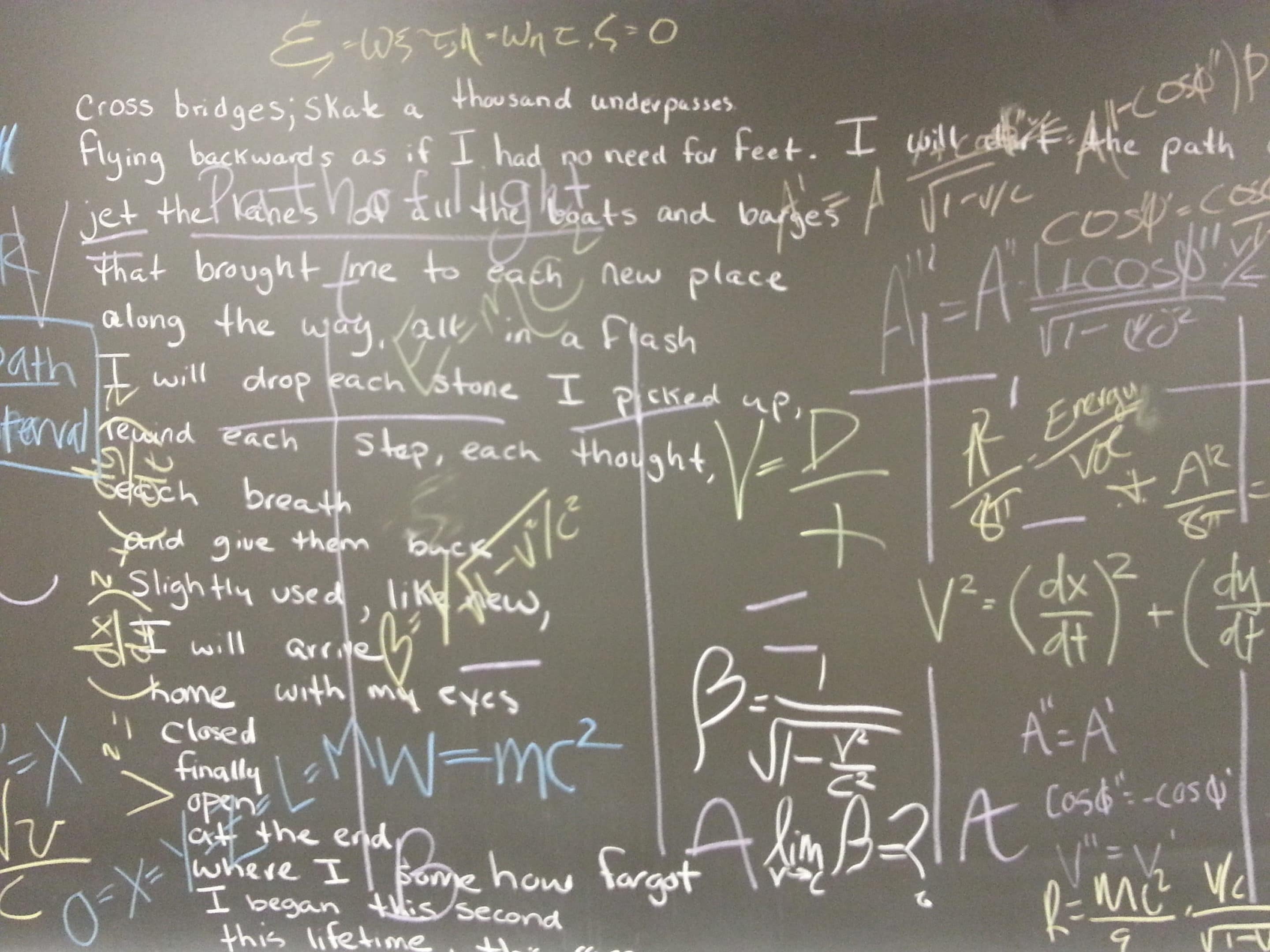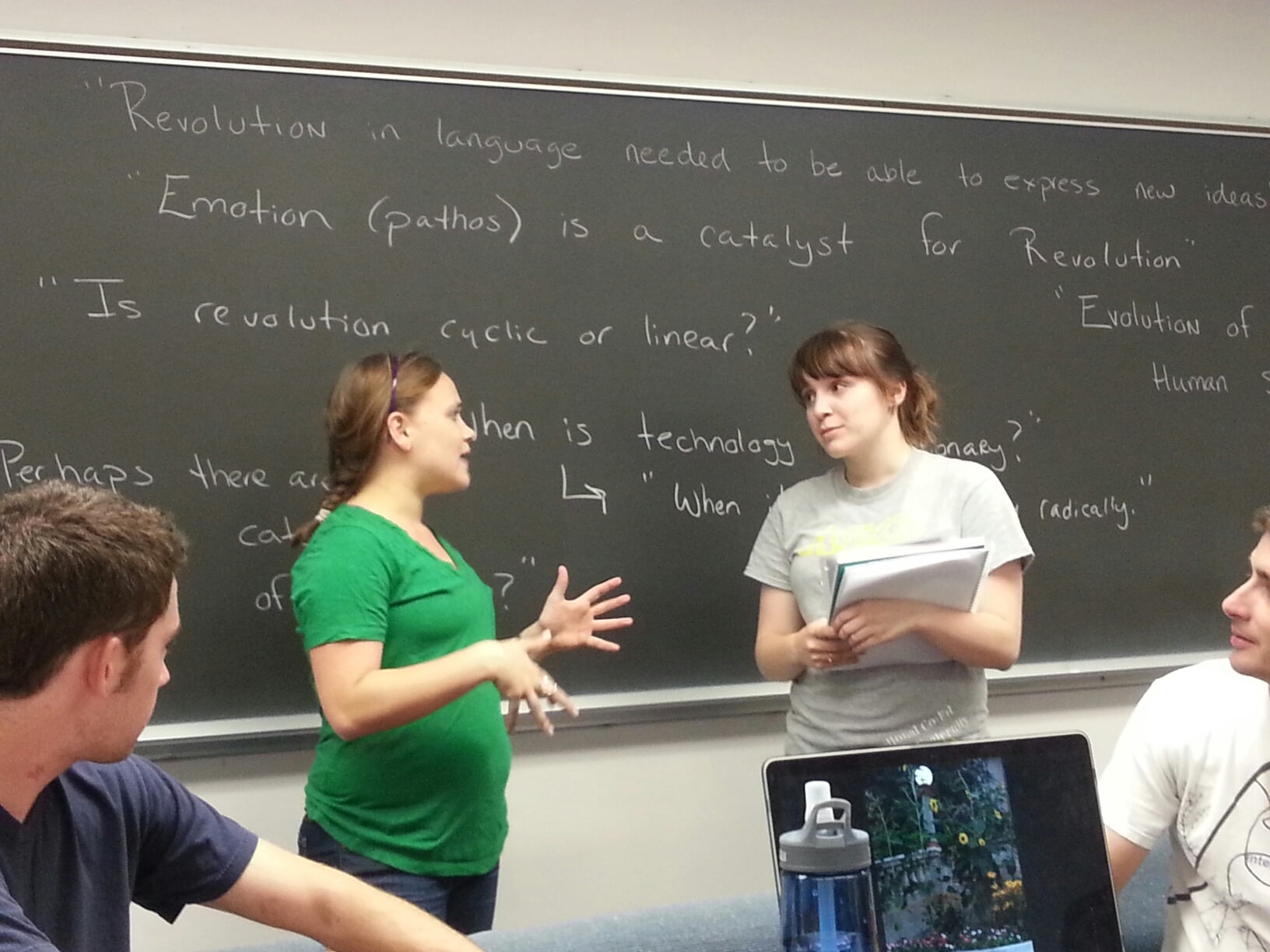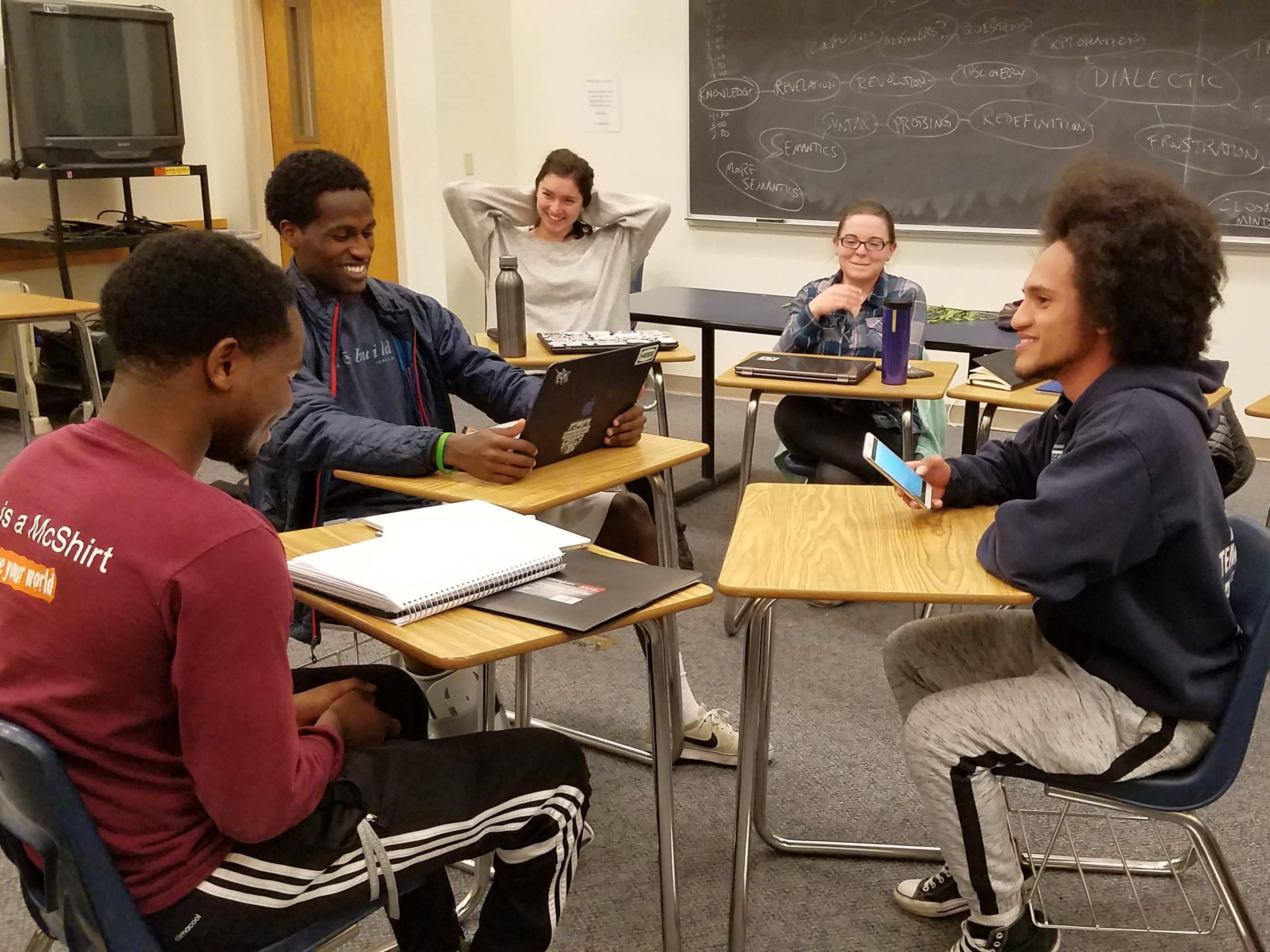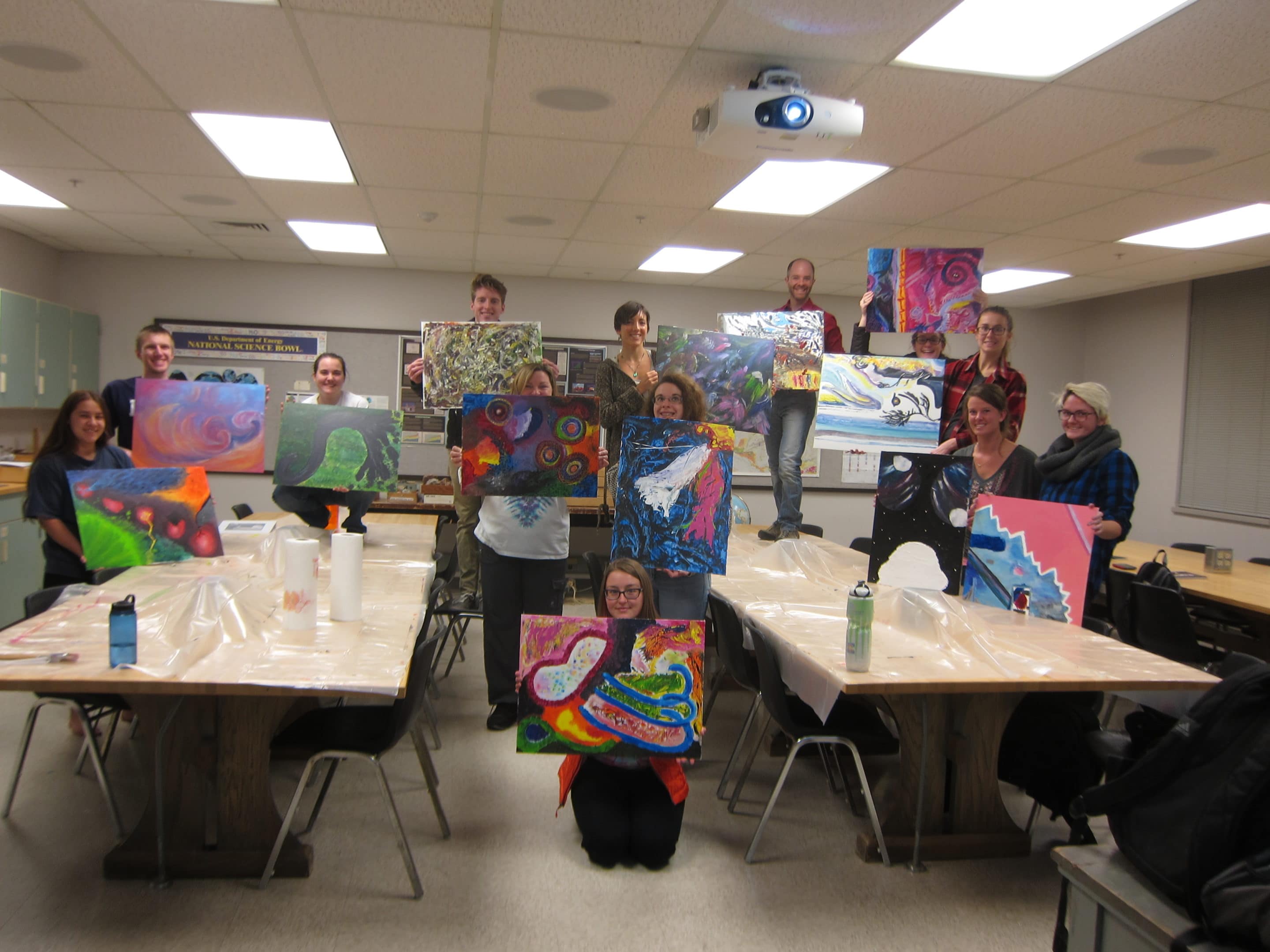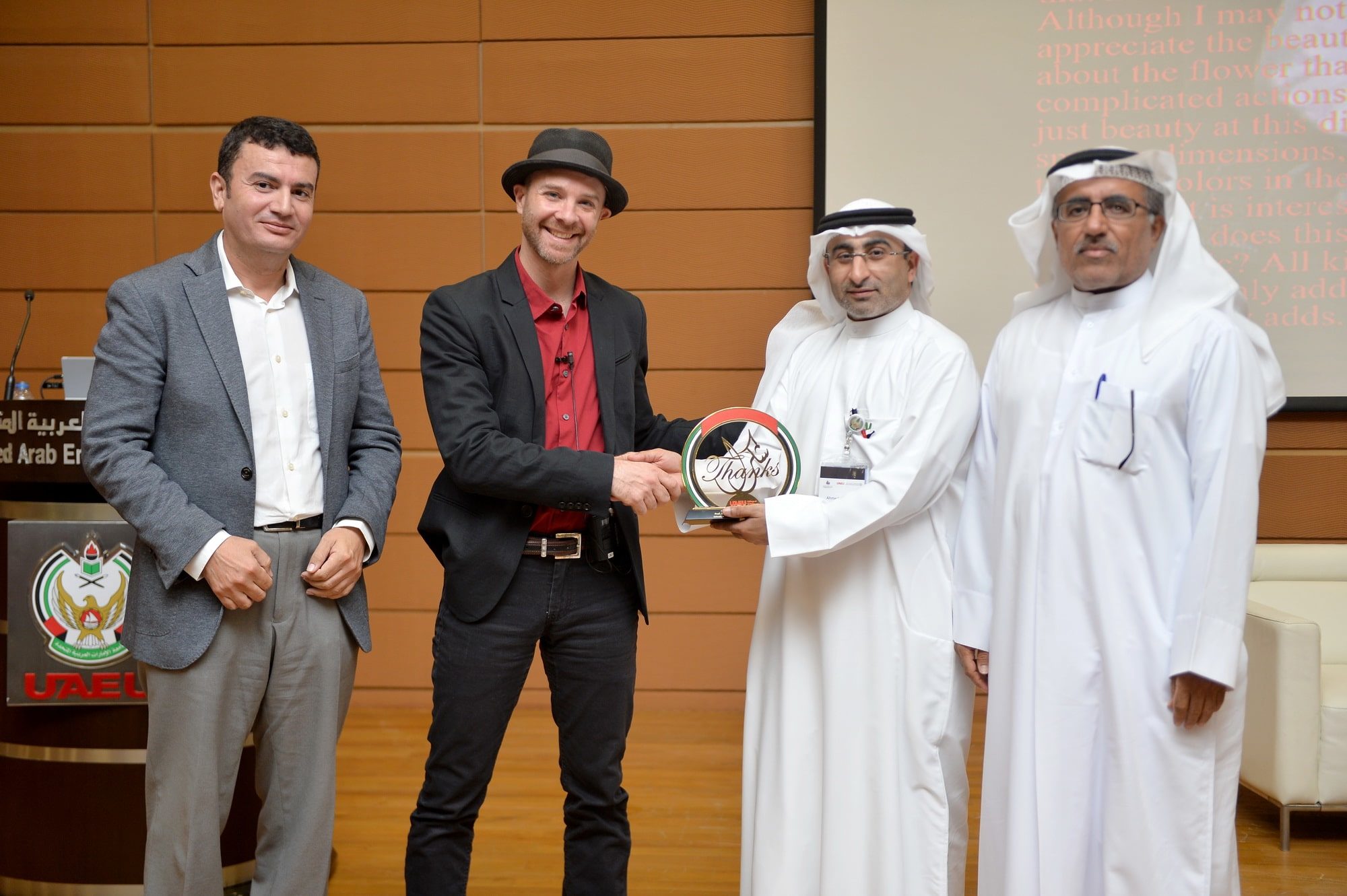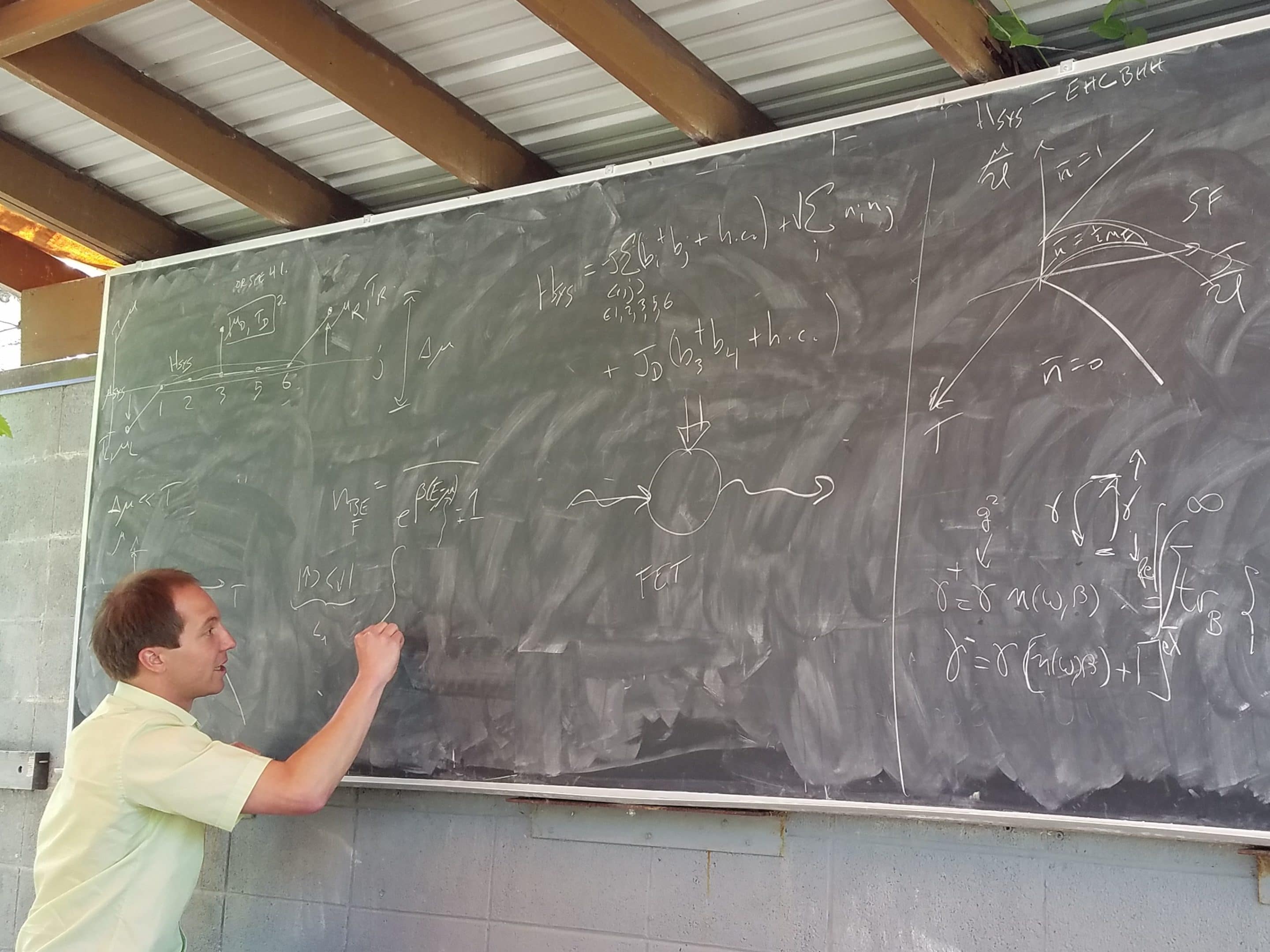Open science provides access to all to scientific results and therefore grows citizen science. Everyone can read Shakespeare and Maya Angelou. Why shouldn’t everyone be able to read Einstein, or Nergis Mavalvala’s work on gravity waves? Especially in this age of internet conspiracy theories and fake news, making data widely available to anyone to analyze is helpful to those who wish to independently verify results, as any critical thinker should do. Many significant discoveries have been made by citizen scientists in astronomy and paleontology. We should make all STEM fields accessible to an educated, enthusiastic, and really quite talented public.
Fall Office Hours: Tuesdays 9 am – 4 pm in my office (CK323); I can also be found in the Quantum Theory Lab (CK230).
Physics Courses
- Undergraduate Mathematical (and Computational) Physics
- Undergraduate Classical Mechanics
- Honors Senior Design Practice I-II (Senior Thesis)
- Theoretical Physics Seminar
- Graduate Complexity Seminar
- Graduate Classical Mechanics
- Graduate Electromagnetism
- Graduate Quantum Mechanics I-II
- Graduate Statistical Mechanics
- Emergent Phenomena in Quantum Many Body Systems
- Frontiers of Quantum Mechanics
- Advanced Condensed Matter Elective: Complex Systems
- Physics of Complexity Science
- Fundamentals of Quantum Engineering
Honors Courses
- Pathways to Innovation: Synergies between the Sciences and the Humanities
- Cognition, Creativity, and Catharsis: Global Paradigms and Modes of Thought
- From the Lab to the Page: Revolutions in Science, Literature, & Society
- Time: Global Paradigms and Physics
- Global Modes of Thought: From Gilgamesh to Dali
- Public Speaking as a Catalyst for Action
- The Art and Skills of Science Diplomacy
- Graphic Novels Writ Large: From Streaming Media to OpenAI
